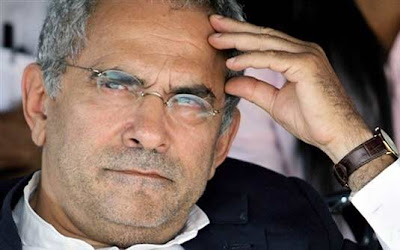Posted: 15 March 2012 1835 hrs
Residents wait for their free sack of rice from the government, being distributed at a veterans centre in Dili on March 15, 2012 that will be used as polling centre. (AFP PHOTO / ROMEO GACAD) | ||||||
| | ||||
DILI: A decade after winning formal independence from Indonesia, Timor-Leste will hold its second presidential election as a free state Saturday in a pivotal year for the impoverished oil-dependent nation.
The vote is the first in a series of key events in the chronically unstable country, still traumatised by Indonesia's brutal 24-year occupation which ended with a bloody vote for separation by Timorese in 1999.
Among Timor-Leste's many problems is its heavy reliance on energy reserves, which account for around 90 per cent of state revenues.
Timor-Leste is labelled by the International Monetary Fund as the "most oil-dependent economy in the world", relying on a petroleum fund that reached $9.3 billion last year.
In May, Timor-Leste will celebrate 10 years of independence, which came after three years of UN administration following the violent referendum. Then in June, voters will choose a new government in a general election.
At the end of the year, the half-island nation of 1.1 million people bids goodbye to UN forces stationed in the country since the 1999 independence vote.
Constitutionally, the presidency is largely a ceremonial role, but its profile has been boosted by incumbent Jose Ramos-Horta, a Nobel laureate who for decades has been the international face of Timor-Leste.
Ramos-Horta, who survived a 2008 assassination attempt, is the second post-independence president after Xanana Gusmao - the former anti-Indonesia rebel leader who is now prime minister.
Twelve candidates are running for the presidency but the race is expected to be a three-way contest between Ramos-Horta, the Fretilin party's Francisco "Lu Olo" Guterres, and former armed forces chief Taur Matan Ruak.
"The elections are very important because of this security transition," said Aderito Hugo Da Costa, a member of parliament from Gusmao's National Congress for the Reconstruction of East Timor (CNRT) party.
"If it goes peacefully, this process will show people here and elsewhere that we are ready and moving on the right track."
Both Ruak and Guterres, ex-guerrilla leaders and heroes of the resistance, are banking on lingering anti-Indonesia sentiment.
Indonesia's occupation of Timor-Leste is estimated to have claimed up to 183,000 lives through genocide, disease and starvation, according to the country's Commission for Reception, Truth and Reconciliation.
After supporting Ramos-Horta in the 2007 election, the CNRT will this time back Ruak, with insiders attributing the switch to the incumbent's criticisms of the government.
The popular 62-year-old president says he is too busy with state matters to run an active campaign, while other contenders have been campaigning nationwide.
The drab streets of the capital Dili have been festooned with colourful banners and posters of frontrunners.
Droves of mainly young supporters -- spilling out of honking buses and cars, or perched in fours or fives on motorcycles -- have been racing through the streets in the run-up to the vote.
Supporters wearing T-shirts bearing their candidate's picture flash victory signs or yell "viva" in the country where Portuguese colonisers left their mark through the language.
This election period has largely been peaceful, in contrast to the rioting and factional fighting that broke out in 2006 ahead of parliamentary elections the following year.
The violence left 37 dead and brought the country close to civil war.
Campaigning officially ended Thursday, but efforts to sway voters continued.
At a centre for veterans of the guerrilla war against Indonesia on Thursday, around 100 people queued for free sacks of rice under a banner urging them to vote.
"We were just asked to show up and each family is receiving a sack of rice," 73-year-old retired farmer Armando Ximenes Sousa said.
Asked if that would influence him to vote for Ruak, he said: "No, this has nothing to with that."
But Jose Teixeira, an advisor to Guterres, disagreed.
"This is happening nationwide. Vote buying. Nothing short of it," he said.
Looking ahead, Da Costa said that a resolution of a territorial dispute with Australia over the giant Greater Sunrise gas and oil field in the Timor Sea was crucial to Timor-Leste's economic progress.
The field has 300 million barrels of oil and 2.53 trillion cubic metres of gas, according to Australian government figures, with Timor-Leste's share worth nearly $20 billion over 40 years.
But the riches will only transform Timor-Leste if the money is spent well, Guterres said, highlighting the need to address accusations of rampant corruption in the current government.
-AFP/ac
